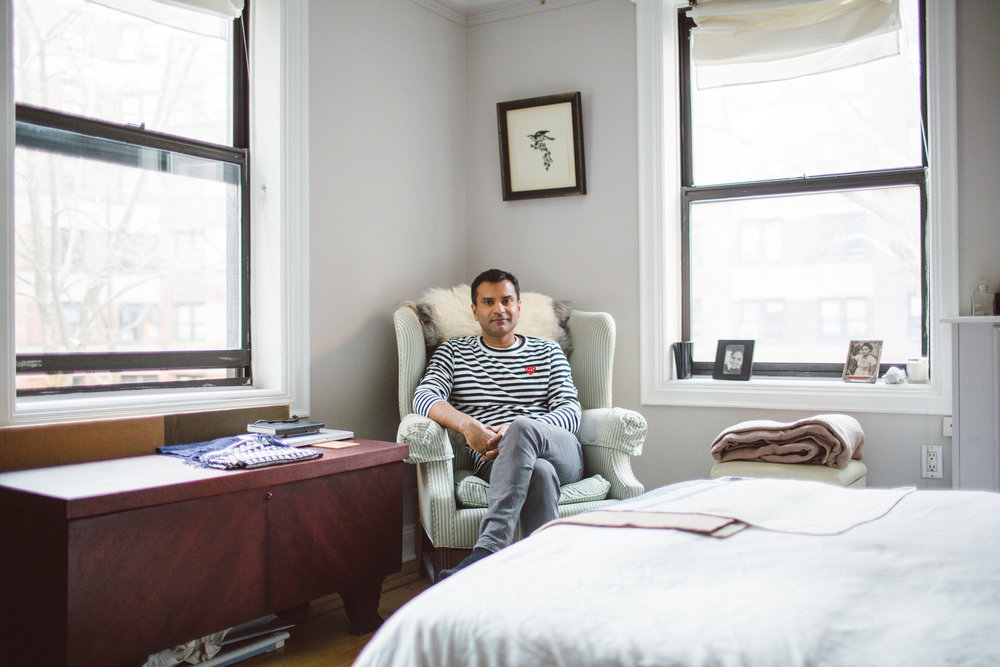

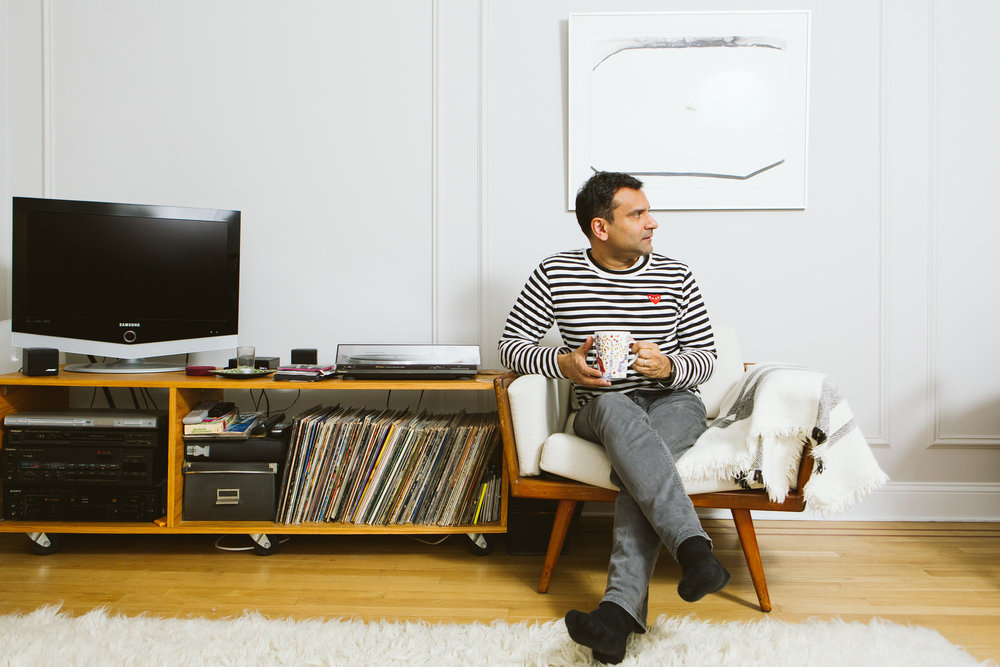
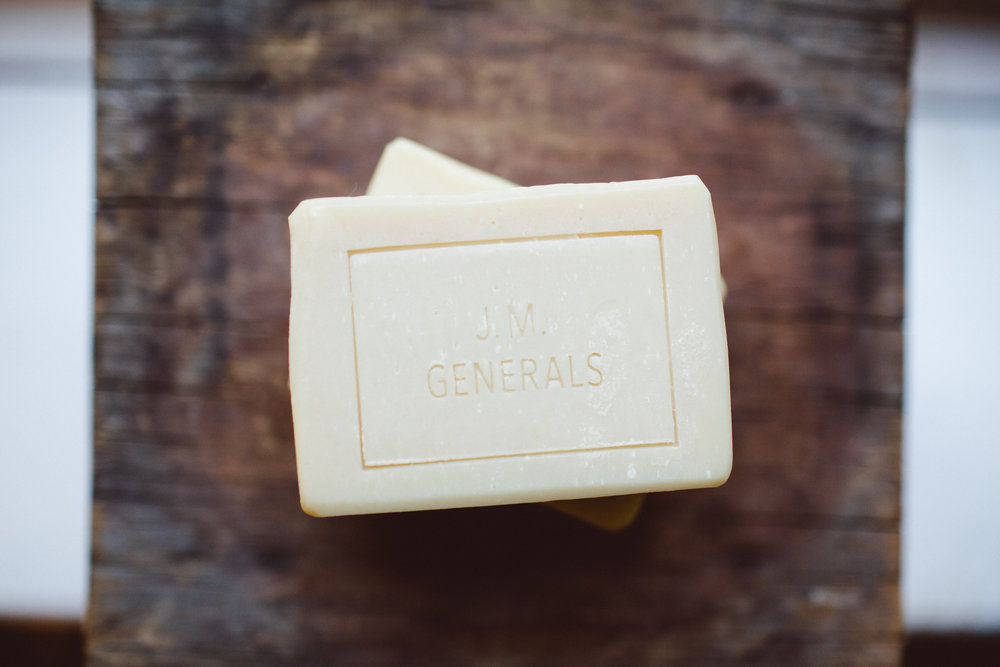

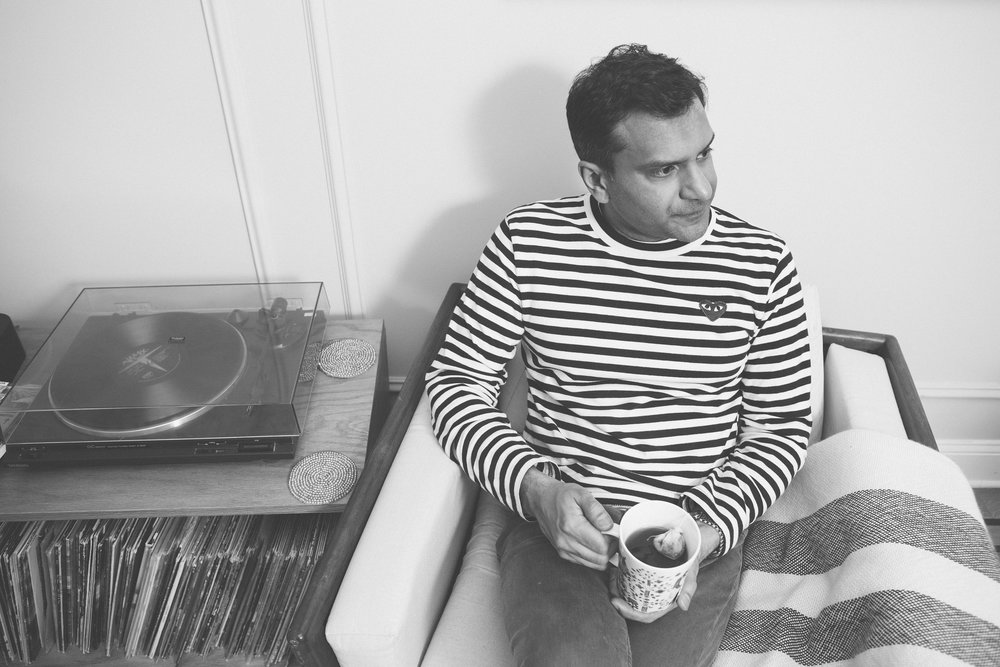


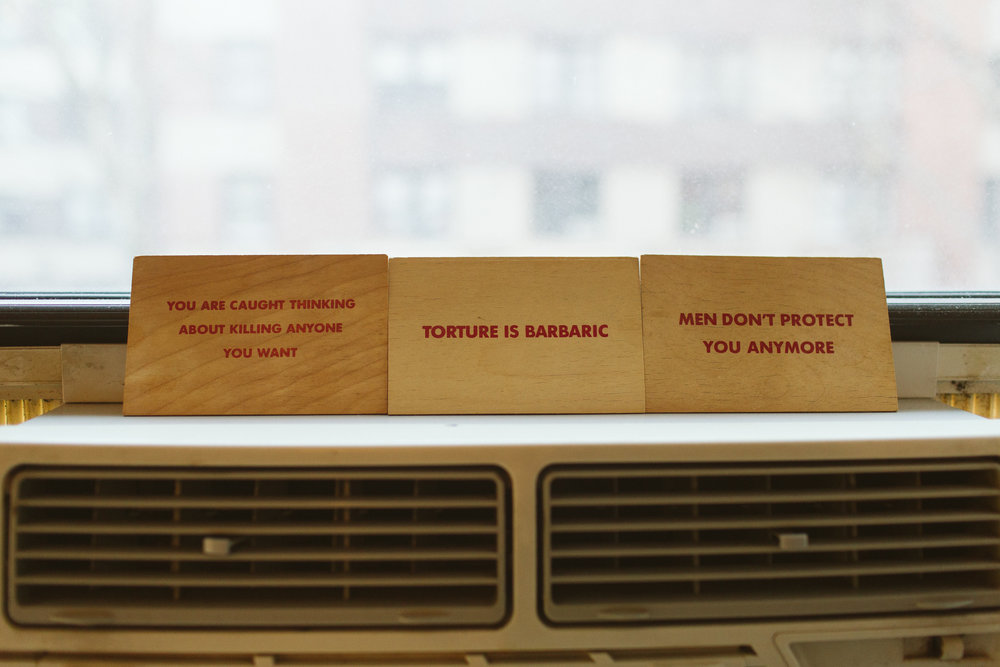
By Vanessa Packer
Photography by Sasha Israel
“DESIGNING A SALAD CAN BE LIKE DESIGNING A ROOM OR A PIECE OF CLOTHING, IT’S SO VISUAL,” Jeffrey Monteiro explains to bonberi as he composes a salad of, among other things, roasted cherry tomatoes, fennel and smoked trout. The former creative dirctor for Bill Blass and noted veteran of the fashion industry recently launched J.M. Generals, a line of thoughtfully sourced and ethically-produced artisanal goods. For the time being, items are available exclusively on Monteiro’s website and products range from an unscented bar of goat’s milk soap to plush American-made cashmere throws loomed from goat farms sourced throughout the United States. From the sleek labels and frosted glass dispensers to the subtle hued throw blankets, Monteiro’s designs are minimal and effortlessly chic. Much in the way he designs his collection, his kitchen is a place where Monteiro expresses his visual aesthetic and organic values. “I’m very conscious of where everything comes from now,” expresses the India native who grew up flitting between Australia and the Middle East, in between bites of his incredible homemade carrot top hummus. “I like to make things and eat it straight away when it’s still alive and the cultures are still there,” he continued. In his sitting room of well-appointed design books by Guy Bourdain and Philip Johnson, and NPR humming in the background Monteiro settles in to discuss meditation, the naturopath that changed his life, how he kept balanced while working in the fashion industry and what inspired him to “cook for color.”
What’s your background originally?
My parents are Indian, but I was born in the Middle East in Qatar. I spent the first 8 years of my life there until I went to boarding school in India. Most of my mother’s siblings were in Australia so we moved there. I lived in Australia until I went to live in England and Europe for a while. I went back to Australia, but and now I’ve been in New York 14 years.
How did growing up in such diverse places influence the way you like to cook and the way you like to eat?
Color is a big thing for me. I remember when I first went to India the two things that got me were the smell and the color. Being born in Arabia around the desert it can be so desolate, so the color in India really stuck out. The smells, the markets and the fabrics. As I got older, I became a lot more minimalist even though I still like my food to be colorful. I like to cook for color.
How would you describe your diet?
I’m more concerned with organic. I eat fish and mostly vegan but I like to incorporate protein. I prepare a lot of my own food rather then eating out, so it’s easy. I love Italian food and when I used to go to Italy often, I would bring back a lot of cheese and wine. I’ve had to cut myself off.


Does your husband eat like this?
I’ve influenced his eating a lot. I do most of the cooking.
Is there something you make regularly?
I make a lot of salads. There are always two or three salads with every meal. My go-to dish that I love is leeks, smoked trout and pasta. I used to eat a lot of pasta, but that has changed now. When I do, I make homemade pasta with gluten-free flour. I buy it from Better Batter. It’s a multi purpose blend with rice and quinoa, and then I add in a little xantham gum and sometimes I put in some cornmeal and almond flour, chickpea flour too. It depends what I’m making, but I like blending other flours. For the pasta, I also add eggs and roll it out. I’ll either cut it by hand or put it through the machine. I’ve converted two or three people that didn’t believe gluten-free pasta could be good.
J.M. Generals is made from goat’s milk, do you also eat goat’s milk products?
I do when it’s not pasteurized. I don’t do a lot of it because then I’ll slip and start eating cheese and things. Unpasteurized I enjoy, the raw enzymes are really good for you.
Do you take vitamins or supplements?
I get what I need through food. I used to always take multivitamins and fish oils and I realized that it’s all processed. So I stopped and now I just incorporate it into food. I like to make things and eat it straight away when it’s still alive and the cultures are still there. Probiotics for example, I get from eating fresh sauerkraut and pickled things. It’s about balance, especially if you are having processed foods you need the probiotics. I stay away from them, but I still have alcohol occasionally so I need the probiotics to help balance my system. There is a movement that talks about how fermenting is the best thing for you, because the bacteria that forms naturally when it’s digested will help replenish what bacteria was supposed to be there but has been stripped away. It affects everyone differently, sometimes people get sick from it. But it is said to build up immunity and health, and it will help you digest. I do it for digestion.
Was there a particular moment or person that set you off towards becoming healthier?
Amy Rachelle. She is a naturopath, an intuitive measure and a big raw foodie. She does workshops and used to live here in New York, but she moved to Bali. She’s my spiritual godmother. She does a body reading where she’ll look into your eyes and read the energy. She’ll sense you are having certain problems and she is always spot on. She has put me on green diets before, most recently she told me to go off dairy. I follow what she prescribes and I really notice a difference. I couldn’t do raw for longer than two months because it got to winter and it was too hard. But she helped me make big changes in my diet.


How changing the way you ate make positive differences in your life?
I had eczema and her diet plan really took that away. I just thought I should also consider what I’m putting on the outside as much as I think about what I put on the inside. So I began to do research into soaps, shampoos and detergents. Discovering what is good and doesn’t have sulfites and then I discovered goat milk. Many goat milk products didn’t smell so great or look so pretty. Natural products are great but they don’t have that clean chic look. So I wanted to do natural products that have the aesthetic packaging as well.
How has your philosophy and diet and health changed since working with your naturopath?
Completely. I’m very conscious of where everything comes from now. With every ingredient that is in the soaps and candles, I know it is all coming from places that are non-GMO and even the glass jars are recycled. It took me six months just to find that. Pretty much everything is sourced in the States. If you want something that is unique sometimes you have to go a little further.
What about fitness?
For the last 20 years I’ve practiced yoga, now I’m starting to veer more toward Pilates. I’ve always felt connected to the spirituality and whatever you bring, you get out.
Did you have any tricks for keeping balanced when you were working full time in the fashion industry?
I would give up indulgences for fashion week. That was my thing. It is how I maintained my sanity especially with the scheduling, it just escalated. For the first year and a half I was continuing to finish up my line while doing Bill Blass, sleeping four or five hours a night, so I had to make sure that I was being conscious of my health. Every season I would give something up, bread, cookies, etc. The stress was just too much and I’m an all-or-nothing person, so I had to give something up. If I didn’t do that, I would have eaten a box of cookies. One season, I did just juice at night. It was always crazy late hours at the office and your access to healthy food was limited, it was always takeout food and I would drive people crazy because I’d tell them not to bring plastic utensils or napkins. I was always conscious of environment and things like that. When the time came to evaluate whether or not to be in fashion full time, I decided that if I was going to do it, I would do it across the board and create something that encompassed my values, incorporated into my lifestyle and brought a vision and carried out my work and every aspect of my life.
When did you launch J.M. Generals?
November 2013. I’m slowly developing products and adding things to it. I want it to eventually be a full range of artisanal local made products. There is a company that I very much love called Manufactum. It’s a German company that makes the best products in the world. They sell everything from canned pearl onions to stones but it’s all the best of everything. I’ve always thought that’s the sort of business I would like to have. The name Generals gives me the freedom to design, it’s not limited.
You split your time between Manhattan and upstate, how has that affected the way you design?
I was at a dinner party upstate recently and this man was like, “I have all this wood and I really love what you do, maybe we could do something together,” and I thought, “Sure, I have a table in mind, or a chair.” That is something we will start to explore. I like the idea of community and collaboration. All my neighbors are woodworkers and sculptors and iron workers. We want to set up an arts community there.


What are some of the founding principles of J.M. Generals?
Knowing the provenance of everything, that is the driving force. Putting in my aesthetic values, my social values and community. It’s maintaining that philosophy through all the products we create. Sometimes, I miss the rush of the collection seasons when everyone is together and all the sewers would come in and fittings and models and stylists and everything. This effort that everyone was there to get something done. I want to create that in a broader sense.
Is that what you look for when you work with collaborators?
This idea that they have something, you have something, and how can you talk and come together. To feel that you have moved out of what you know and learned through a process, that’s how the chemistry happens.
Do you have meditation practice?
The last four years, twice a day. It’s not transcendental meditation, it’s an offshoot, it’s taught by an Indian guru. You get a mantra and you meditate 20 minutes a day. You chant at workshops and you are meditating toward a spiritual cause. Transcendental seems more personal, while this is more collective, even though you get your own mantra that you don’t share with anyone else. I’m up to the point where I have to go back and do a more advanced level. Every now and then, I meet up with people to meditate or I do it individually or I’ll go to workshops. It’s interesting because doing 20 minutes twice a day, sometimes you feel great, and other times you don’t, it changes all the time. It saved me. I first started doing it when I took Bill Blass on. I was doing two things for a while and I needed something to keep my center. It’s changed my life.
In what way has it changed your life?
I don’t attach to anything for too long. It has made me realize that it is all a journey. I let go of things a lot easier than I used to. We all have our days. Doing what I do now has really helped me a lot because working in fashion, it was always like I wanted it yesterday. You push and push and now I work with people who have their own schedule. Farmers and producers who have their own operation. They don’t want to return an email because an animal is sick or maybe it’s too cold for the crops. I won’t hear from them for a few days. Eventually, you understand it, but it’s on a different level than what I was used to. It’s really taught me a whole different way of dealing with everything. I put it out there and I’m going to wait for it to come back to me.
Do you still travel a lot?
I’ve been traveling a lot in the U.S., visiting farms. I went to Lan Mark Farm in Kentucky and I loved it. Lexington, Kentucky is so beautiful. Rolling hills and acres of land that have been in families for generations. I was staying with one of our producers and they also produce grass-fed beef. I had to eat it because I was staying with them but at least I could see where it was coming from. I hadn’t eaten meat in such a long time. It tasted so different, and apparently it’s because the cows feed off of blue grass that grows on a sea bed in that part of Kentucky. The beef tastes completely different as though it had been cured.
What are things you still indulge in?
I’ll eat chocolate once and a while and a a little bit of red wine and rye whiskey. Upstate there is a vodka distillery we buy from and it’s made right there. I remember seeing a series of photographs of people over 100 years old taken in Germany, some of them smoked, they had different diets but the common factor with all of them was that they drank whiskey and gin.

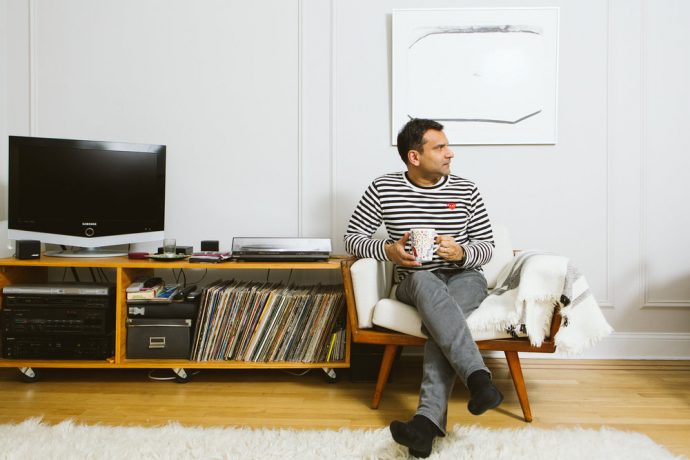

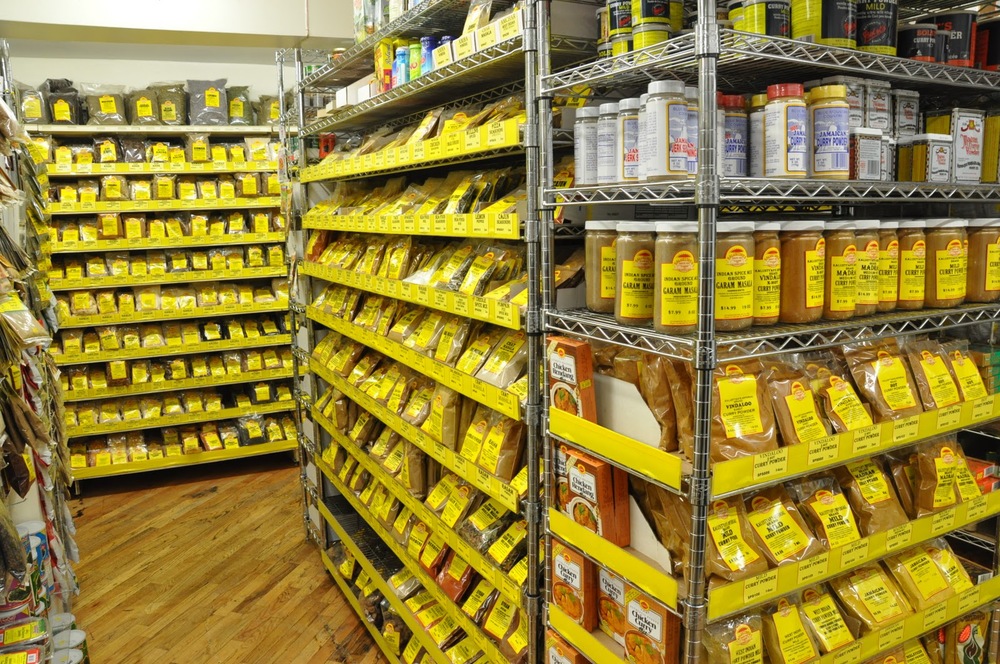
33 Comments